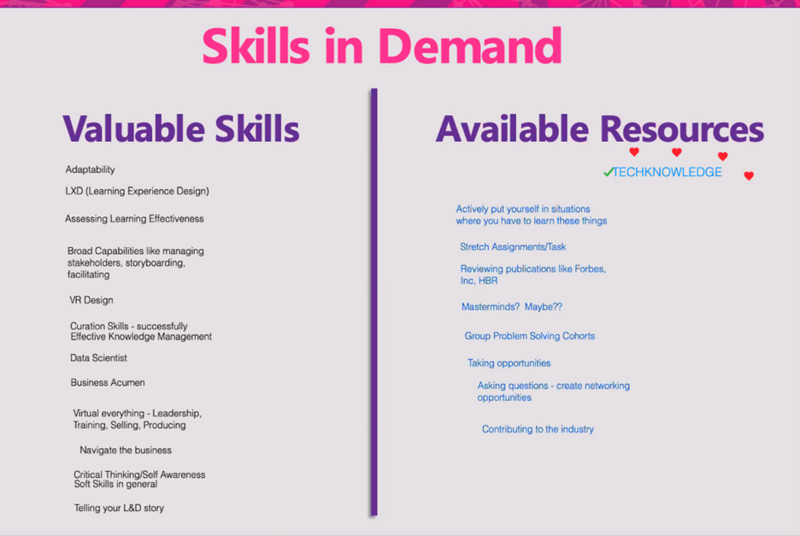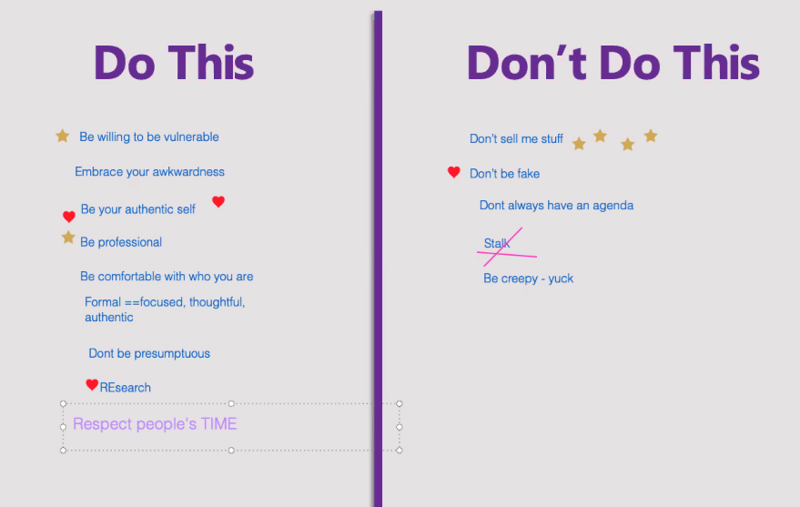ATD Blog
TK CONNECT: Preparing for a Future of Reskilling, Upskilling, and Networking
Mon Oct 19 2020

Can you believe the ATD TechKnowledge 2020 conference was almost nine months ago?! It’s a little scary how true that is. In fact, the ATD TechKnowledge 2021 conference is only a few short months away. One of the commitments we made when planning the 2020 conference, was to create yearlong learning opportunities—a way for us to bring attendees together throughout the year to share how they’re putting into action the skills and knowledge they gained from the conference.
We recently had the pleasure of facilitating our second TK CONNECT event. The first one was all about reflecting on ideas and solutions implemented from the conference. This time, we polled TK attendees for desired topics for the session. As a result, our focus was on a group discussion regarding reskilling, upskilling, skills in demand, and networking.
Reskilling Versus Upskilling
Our first topic was to define the differences between reskilling and upskilling. It’s often easy to conflate these two terms; however, from a professional development perspective, they have very different meanings. As a group, we concluded:
Reskilling is the act of obtaining new skills to prepare yourself for a completely new occupation. For example, if you’re a classroom facilitator, you may reskill yourself to become an instructional designer. And although those two occupations “live” under the larger umbrella of learning and development, they require two very different skill sets.
Upskilling, on the other hand, focuses on improving your existing skills. For example, if you’re an e-learning developer, you may upskill yourself on a new piece of software to complement what you’re already doing.
Skills in Demand
From here, we started a conversation about the most valuable skills currently in demand in our industry, along with methods for obtaining those skills. While many different skills were mentioned—such as learning experience design, VR design, or “virtual everything” (training, selling, producing, leadership)—the group emphasized the role soft skills play. The following three skills were decidedly critical:
Adaptability. The willingness to easily become flexible to the needs of the organization
Broad capability. The ability to wear many different hats throughout a project’s life cycle
Business acumen: Understanding how your efforts as a learning professional affect the business
In terms of the resources folks identified for obtaining those skills, it was less about formal learning opportunities and more about putting yourself in situations and experiences to naturally develop them. Some suggestions included taking on stretch assignments, joining cohorts for group projects and problem solving, and sharing your work with the community for feedback.

Networking
During the second half of our session, we explored some of the misconceptions and truths about networking. If you’ve ever been to a conference, like TK, then you know how many opportunities there are for networking with others. However, a lot of folks have negative misconceptions about what it means to “network.” For example, a common misconception is that networking is negative and self-serving—that it’s all about how to get other people to do things for you. The truth is that networking is about how you can help others.
We then spent some time crowdsourcing the dos and don’ts of networking. For instance, do help others first but don’t only network so that others will do things for you.
For folks like us, networking comes easy. But, as a result, we’ve learned that many of the ideas people have about networking are just plain wrong. For example, networking shouldn’t be a forced or contrived exercise. Yes, it takes effort, but at the end of the day, networking is about establishing relationships with likeminded people who will be mutually beneficial.

One Tiny Action
At the end of each section was a call to action—one tiny action. Participants were asked to commit to one thing that centered on what we had talked about: upskilling, reskilling, skills in demand, or networking. This brought to the conversation a sense of accountability without asking for a large commitment. We all agreed to do one tiny action to move the needle on these things in our own personal and professional lives.
Now it’s your turn. You read the synopsis. What one tiny action will you take to put these concepts into practice in your own life? We would love to know!
You've Reached ATD Member-only Content
Become an ATD member to continue
Already a member?Sign In
